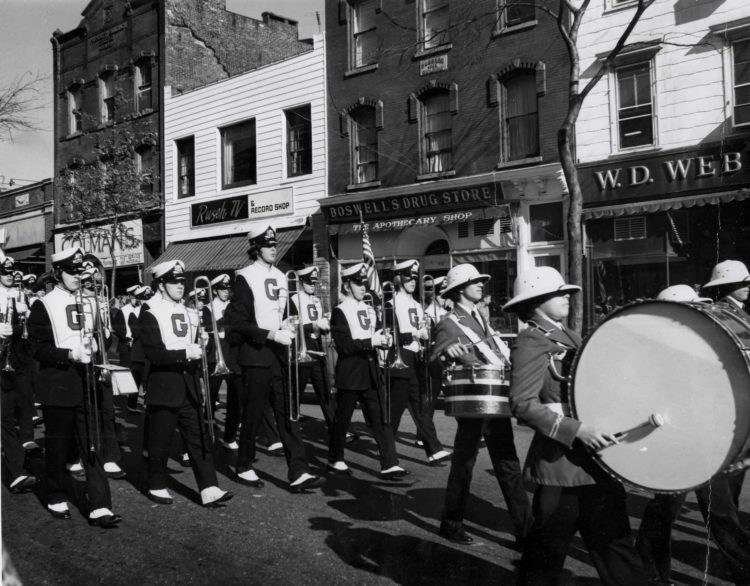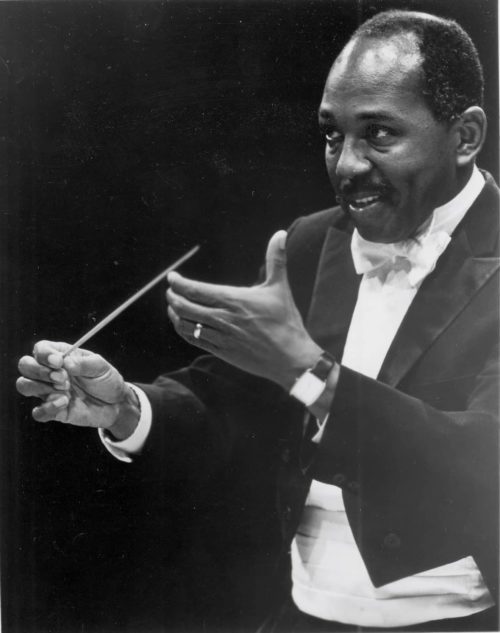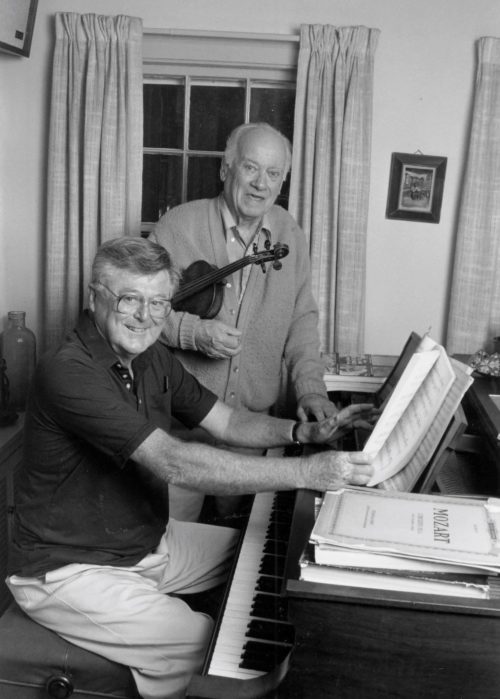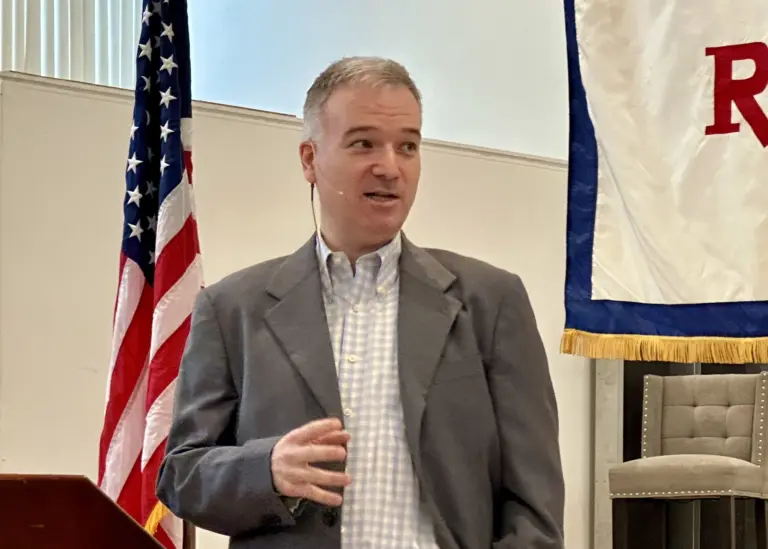
By Mary A. Jacobson
As the school year draws to a close, it seems fitting to highlight a few teachers who made an indelible imprint on the music program in Greenwich and inspired countless students to love and play music. George Gray and Raymond Malone were interviewed for the Oral History Project in 1989 by Mary B. Coan. Collectively, they served sixty-five years in the music department.
George Gray discovered his dad had a violin when he was a seventh grader in the Greenwich schools. “It happened, I guess, that somebody discovered I had a talent, so there you go.” At the age of twenty-four, with degrees from Juilliard and Columbia University Teachers College, George sought a position teaching strings. “Then this job opened up in Greenwich, a string teaching job, and I think it was one of the first in the country…It was exactly what I wanted to do.” The year was 1938 and the annual salary was $1,700.
As a novice teacher, Gray’s supervisor, Mary Donovan, instructed him to introduce himself to all the principals of the eleven district schools in which he would be teaching. He fondly recalled meeting Frank Parker, Principal of Hamilton Avenue School, whose reaction was, “What in the hell is a string teacher?” Gray’s job involved teaching in at least two schools a day. “It was about the best job that anybody that wanted to teach strings could have ever asked for…The kids enjoyed it and I enjoyed it…We developed a pretty good high school group, high school orchestra, and I also had an interschool orchestra that met on Saturday mornings.”
In the late 1940s, when the position of Supervisor of Music became available, Gray was encouraged to apply for it. One of his biggest responsibilities as Supervisor of Music was the selection of music teachers. “If I had maybe two opening for teachers in a particular year, I might have a hundred or more applicants for those jobs.” This responsibility also entailed some traveling. “If you couldn’t find a good teacher, you were really wasting your time trying to supervise a teacher that wasn’t any good, because they don’t change very much…I don’t think I ever hired a teacher unless I saw them teach…It makes all the difference in the world.”
One of the most memorable positions that George Gray filled was in the spring of 1956. Gray had traveled to Potsdam State Teachers College, one of the best New York State music schools, according to him, to interview a highly recommended choral conductor. His name was Peter Bagley and Gray heard “what a wonderful conductor he was, how the kids loved to perform under him.”

Gray brought him to a choral rehearsal at Eastern Junior High. “What a job he did with that! The kids loved him. There was an intensity and electricity about the man…He had every individual’s attention. He would look right at them, and he had a tremendous amount of energy.” After Peter Bagley taught four years, he left to pursue a doctoral degree. Later, in a 2012 interview as Professor Emeritus of University of Connecticut, Bagley said, “I loved being in Greenwich. I was the first African American teaching in Greenwich. That was a milestone; 1957 was pre-civil rights…. I didn’t know what to expect. And the unspoken response was, ‘You’re here. Teach. Be yourself. Do what you want to do. Do what you love.’ That’s what I did…I had some of my best years in that situation. I loved the parents, the students, the community, and I think I can safely say they loved me, too.”
Another teacher Gray recalled hiring was Ray Malone in 1953. “I watched Ray teaching in a couple of classes…where all the desks and chairs were screwed down to the floor…The first thing he does, he puts his foot up on the desk and starts strumming his guitar and singing, and pretty soon these kids were singing. Then he had them stand up, and they were dancing in the aisles, and this was going on all at once. He had the kids all singing and dancing, and this music was going on…The kids just loved this for a music class. So, at that point he was hired. He was terrific.” Malone remained in the Greenwich school system until his retirement in 1983.
Gray mused, “There have been any number of students who have gone on professionally in music. A lot of them came up through Ray Harrington at the high school.” One of the students in particular that Gray recalled was Erich Kunzel (GHS graduate, 1953) who used to play string bass in Gray’s string ensemble. Among his many later musical achievements, Kunzel conducted the Cincinnati Pops Orchestra for more than three decades. In 2006, three years before his death, he was awarded the National Medal of Arts by President George W. Bush.
George Gray believed in building a strong program from the lower grades and that that was the core strength of the Greenwich music department, recognized nationally. He also believed in giving his teachers some autonomy and creative freedom. As Ray Malone said, “That was the secret to the success of the music program, because each of us had the individual freedom to follow our own pursuits, which drove us into music in the first place…The kids are going to see that. They are going to recognize here’s a guy that really loves music. That really makes quite a force on a child.”
The interview entitled “The Music Men” may be read in its entirety at Greenwich Library and is available for purchase at the Oral History Project office. The OHP is sponsored by Friends of Greenwich Library. Visit the website at glohistory.org. Our narrators’ recollections are personal and have not been subject to factual scrutiny. Mary Jacobson serves as blog editor.




